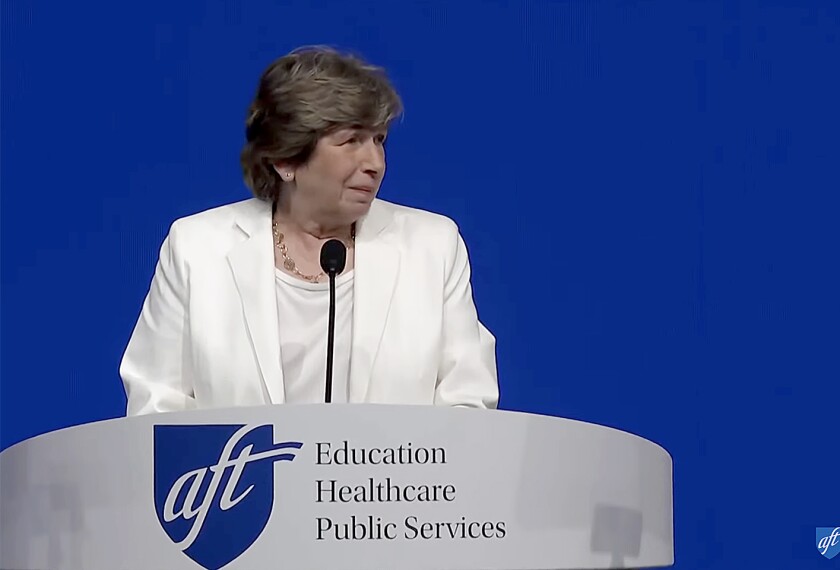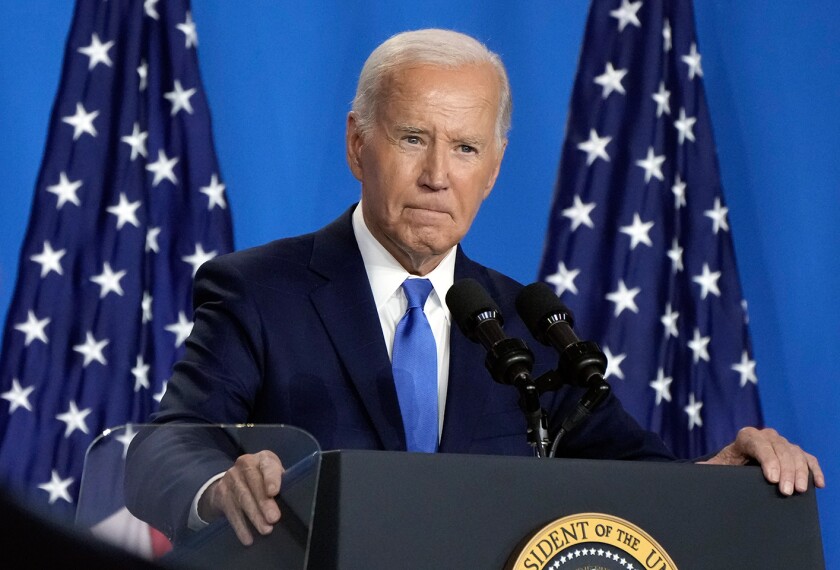The Department of Education received some 125 comments on proposed new regulations for the main federal school privacy law suggesting revisions to make sure student data remain accessible to researchers, to enable states to better track student outcomes, and to protect school officials who disclose student information to ensure the health and safety of students and others.
The proposed changes to the regulations for the Family Educational Rights and Privacy Act, released March 24, represent the most comprehensive update to the law’s guidance in decades. At the K-12 level, FERPA says parents must consent to the release of their children’s educational records that contain personally identifiable information.
The proposed rules would make it clear that schools can enter into agreements to provide researchers with individual student data, as long as the subject of the research was testing, student aid, or “to improve instruction.” And, under the proposed rules, researchers could initiate the project, as long as the school district agreed with its purposes. The district would not have to endorse or agree with the study’s conclusions.
The draft guidelines could help researchers circumvent roadblocks thrown up by some school districts’ interpretation of FERPA, said Eric A. Hanushek, a senior fellow at the Hoover Institution, based at Stanford University.
“The department has recognized the importance of making data available to researchers,” he said in an e-mail. “It has moved ahead to clarify areas that were subject to misinterpretation in the past.”
But Mr. Hanushek said the Education Department is also “not insisting” that states cooperate on research, so a state that doesn’t want to share information could still “drag its feet” under the proposed regulations.
Permitting researchers to have access to student records has become particularly important in recent years, given that implementation of the No Child Left Behind Act has created an array of data that could be used to address questions about how best to boost student achievement and improve teacher effectiveness, said Felice J. Levine, the executive director of the American Educational Research Association, in Washington.
Agreements for Research
In their comments, some researchers and state education officials suggested the proposed regulations be clarified to ensure that states could create so-called longitudinal data systems, which track students from one level of education to another, and give researchers access to them.
The AERA and similar organizations also encouraged the Education Department to provide additional guidance on how researchers could enter into agreements with schools, enabling the researchers to use student data for the purposes of a study.
They urged the department to “certify” agreements between researchers and state and local educational agencies as meeting the requirements of FERPA. And the department could post sample agreements on its Web site to serve as models for researchers and schools, the organizations suggested.
The Department of Education received about 125 comments on proposed new regulations for the Family Educational Rights and Privacy Act. Among the suggestions:
• Make it easier for schools to disclose information about individual students to state agencies to help create a state longitudinal database.
—The Data Quality Campaign
• Allow schools that receive transferring students, such as colleges, to share information with the school the student came from, such as a high school, to better allow schools to track outcomes.
—Massachusetts Department of Education
• Broaden the definition of “improving instruction” in the regulations to allow researchers to study a range of issues that affect student achievement and teacher quality.
—American Educational Research Association
• Permit school districts to enlist the help of law-enforcement officials, mental-health professionals, and other outside experts in determining whether a potentially dangerous situation amounts to a health or safety emergency, and therefore, student information can be disclosed without violating the law.
—National School Boards Association
SOURCE: U.S. Department of Education
The AERA also recommended that the phrase “to improve instruction” in the proposed regulations be interpreted broadly, since researchers may examine a variety of factors, such as socioeconomic status or physical health, that can affect student achievement and teacher quality.
Mental-health advocates praised language in the proposed rules aimed at making it easier for educators to disclose student information to curb a potential threat to the health or safety of the student or other people. The proposed regulation was drafted in the wake of the massacre at Virginia Polytechnic Institute and State University in April 2007, in which a student at the university, Seung Hui Cho, killed 33 people, including himself.
A report on that incident from a panel established by Virginia Gov. Tim Kaine recommended that FERPA include stronger protections against liability for school officials who disclose student information in an emergency.
The proposed federal regulations would implement the Virginia panel’s call for a “safe harbor” provision to protect school officials who disclosed private information about a student, as long as they believed the information was necessary for health or safety reasons.
The Education Department’s draft “safe harbor” provision “strikes the right balance in determining whether a disclosure by an educational institution or agency is justified,” Michael J. Fitzpatrick, the executive director of the Arlington, Va.-based National Alliance on Mental Illness, said in written comments.
‘Significant Threat’
But the National School Boards Association, based in Alexandria, Va., expressed concern that school officials might not believe they have the expertise to decide whether an individual’s behavior constitutes an “articulable and significant threat” to a student’s health or safety, or that of those around them. The group suggested that school districts be able to seek advice from outside experts, such as law enforcement and mental-health-professionals, in making the determination.
And the NSBA suggested that the terms “articulable and significant threat” may present too high a standard, although the group said it had struggled to come up with alternative language. It said that school officials might not act on a potential crisis until it was too late.
“The changes to the health and safety emergency were written with the events of Virginia Tech in mind,” Lisa E. Soronen, an NSBA senior staff lawyer, wrote in a comment. But, she said, school districts cope daily with threats such as sexual abuse, physical assaults, and gang activity.
She suggested that the Education Department provide more specific guidance on how to decide when such behaviors “meet the threat threshold” and collaborate with the NSBA and other education groups to devise informal guidance on how the health and safety emergency exception “works in real life.”
The comment period closed May 8. LeRoy S. Rooker, the director of the Education Department’s Family Policy Compliance Office, which administers the privacy law, said in an e-mail that the department plans to issue the final regulations by late fall.





